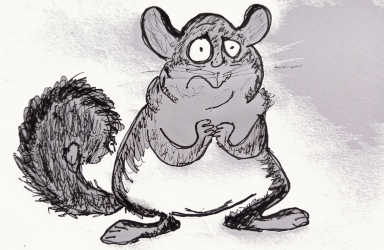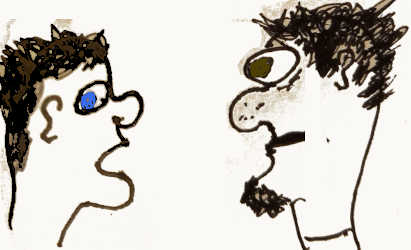During the working week, I’m spending time in one of Sydney’s smallest suburbs. It is so small it doesn’t have a bank or a teller machine. Locals rely on a 7-11 where you are stung $2.50 for every cash withdrawal.
This suburb doesn’t have a general store and even shares a postcode. Yet, there are two pharmacies and I was outside one of them last Monday morning waiting for it to open. It was 10 minutes past the advertised opening time as I waited with a fellow who turned out to be a pharmacist there to do relief work. He explained, the head pharmacist needed to kick-start this operation had been delayed in traffic.
So my new friend and I filled in the time discussing our Covid-19 experiences. He advised that this pharmacy had been so busy that management needed to put someone on just to answer the phone.
I shared that I was not vaccinated and my family had relied on Ivermectin to pass safely through the Covid crisis to this point. It was then that the discussion took an uncertain turn. This is as faithful a record of our discussion as my memory allows.
The Conversation
PHARMACIST: You know, there is no proof that Ivermectin works?
ME: It has been used around the world.
Yes, but there is no proof. There has to be a randomised control test.
A local Pharmacist
PHARMACIST: Yes, but there is no proof. There has to be a randomised control test.
ME: Are you aware of the work done by Tess Lawrie of the BIRD Group?
PHARMACIST: No, but that is just one person.
ME: Are you aware of the work done by Pierre Kory and Paul Marik at FLCCC and their use of Ivermectin. They are frontline clinicians that have treated thousands of patients.
PHARMACIST: I haven’t heard of any of them but without a randomised control test there is no proof it works.
ME: Tess Lawrie is one of the world’s leading experts in assessing the quality of these tests. In fact, she argues that coordinating the results of a number of good smaller studies is at least as effective and possibly better than a large randomised trial because you are not drawing from one source.
Who owns Ivermectin?
PHARMACIST: A small study of 10,000 people is not nearly big enough to prove a drug’s value. People have been getting sick from overdosing on Ivermectin. Even the company that made it said it wasn’t for use with Covid.
ME .Yes, Merck held the patent on Ivermectin until 1996. It now has a competing product, Molnupiravir, so it has been writing articles critical of Ivermectin to promote its much more expensive product. Now that anyone can produce Ivermectin, there is no profit in it. And you would have to take a bucket of Ivermectin to have a problem and an overdose large enough of anything can make you ill, even water. That is just the propagandistic horse paste story. There are no reliable reports of overdose.
PHARMACIST: It has to be proven safe and there is no proof Ivermectin it is.
ME: Well, you don’t take it on its own. It is meant to be taken together with doxycycline and zinc. It is a zinc ionophore which opens the cell to let zinc halt replication of the virus. This protocol was used in India in the Uttar Pradesh province where it effectively wiped Covid-19 out. Africa is the continent with the lowest number of infections, injections and deaths where Ivermectin and Hydroxychloroquine are both in regular use [Antarctica does not count]. Their experience of dealing with malaria has educated them.
PHARMACIST: That doesn’t change the fact it hasn’t been tested and Ivermectin hasn’t been approved.
ME: Are you aware that the TGA is 96% funded by private pharmaceutical companies?
PHARMACIST: What the Therapeutic Goods Authority? That is ridiculous.
ME: Maryanne Demasi has studied regulatory bodies in many western countries including Australia.
Let the mouse speak
“It’s the biggest mistake I’ve ever made”.
Mouse 1 in Moderna’s latest booster trial

PHARMACIST: No, that’s silly. I am following the science. I trust the science.
ME: You trust science that approved the latest Moderna booster that was tested on 8 mice and no humans?
PHARMACIST: I don’t believe it. No drug is passed without going through an exhaustive 3-4 phase testing process.
ME: Sorry, that wasn’t done with latest Moderna “booster”. Our health system is perfectly corrupt.
PHARMACIST: What, the whole system? That’s ridiculous. There were human tests.
ME: I could be wrong but to the best of my knowledge that’s true. The real tragedy is Dr Kylie Wagstaff and Professor David Jans, working out of Monash University, were the first people in the world to identify Ivermectin’s efficacy in treating Covid-19. Jan’s spoke to the ABC’s Norman Swan about it. And then there was nothing. Next we hear from Monash, they are manufacturing the Moderna poison.
PHARMACIST That’s because Ivermectin has not been tested.
THE PHARMACY OPENS
ME: Anyway, Tess Lawrie is the key person here. Well-respected. Has actually worked for the WHO.
PHARMACIST: I’ll look her up.
What did I learn?
There is no need to be afraid of someone with a different opinion. It is an opportunity to learn, if you take it. This is something we were discouraged from doing throughout the pandemic. Lockdowns made it harder as did politicians, media and medics who encouraged the spitting of invective at anyone who challenged the official narrative.
Sadly, there was no time for me to tell him about my family member who was given a dose of Remdesivir in a Sydney hospital before I could stop it. Would he have known of it? Not sure. Would he have believed my story that it was a kidney poison. Not a chance.
Will he look Tess Lawrie up? If he does, he will find that even Google considers it dangerous to mess with her reputation such is her character and standing of her Evidence-Based Medical Consultancy. Enter “Tess Lawrie” into a Google search engine and you have to go the bottom of the first page to find a snaky Scientific American article that accuses her of sharing misinformation. Most expert challengers of the Covid-19 narrative get much shabbier treatment than that.
Doctors profess their faith
The conversation with my new pharmacist friend was interesting because of what it taught me. In recent times, I have had a number of discussions with various doctors. Anything that appears to be a sleight or to question medical orthodoxy appears to be taken by them as a personal affront and is rejected or ignored. Given this excuse, the professional has often taken the opportunity to assert “The Science” and put me in my place.
This can come in response to a simple question such as: “Should I take the vaccines?” or “Do you trust the PCR and RAT tests?” We are constantly reminded by our better angels to “Forgive them for they know not what they do” or we are told “They are scared of losing their job”. OK, but many in the medical profession show a zeal bordering on recklessness in their desire to meet demands that may conflict with their patient’s interests.
I realise that I am no expert on these matters. I was not trying to be smart or to “one-up” the Pharmacist. His organization is dispensing medicines to this local community, including members of my family, so I thought I’d find out what he could teach me. What it confirmed is that we are in danger if we leave others to make important decisions for us.
The opportunity to debate with someone with formal expertise is rare and I appreciated his willingness to engage. It also reminded me that not everyone on the other side of this argument is part of a conspiracy. In a sense, that was comforting.
Upton Sinclair comes to mind:
“It is difficult to get a man to understand something, when his salary depends on his not understanding it.”
But I don’t think his position was driven by money. What did concern me was what appeared to be his lack of curiosity. A curiosity that science should have piqued by now. What happened?
A definition might help. The first two syllables of “profession” give us the verb: to profess. Their seems to be a religious affirming, claiming, pretending and professing that has little to do with our health but more a commitment to a new faith.
This is “The Science” and it is a fierce God that abhors challenge. In this light, curiosity can only lead to questioning and a departure from the faith this God demands.
Only time will tell just how vengeful He is.
1: to receive formally into a religious community following a novitiate by acceptance of the required vows
2a: to declare or admit openly or freely: AFFIRM
b: to declare in words or appearances only: PRETEND; CLAIM
3: to confess one’s faith in or allegiance to
4a: to practice or claim to be versed in (a calling or Profession)
b: to teach as a Professor
This article can also be found on Substack
Warren Ross
e: katwlr@protonmail.com
